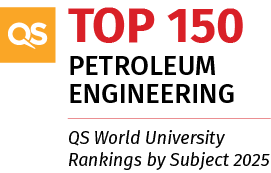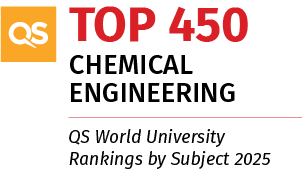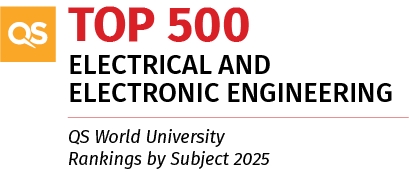Programme Educational Objectives (PEOs)
PEO1: Graduates who are competent in their field of expertise and have the appropriate practical and soft skills to work in the industries.
Performance Indicators- Working towards a Professional Engineer status (5%)
- Career advancement in the past four years (15% senior position)
- Employer satisfaction survey (80%)
- Lead or co-lead engineering projects (15%)
PEO2: Graduates who are able to demonstrate professionalism and ethics in their field of expertise and contribute to the betterment of the society and environment.
Performance Indicators- Registered with Board of Engineer Malaysia (BEM) for local graduates (100%)
- Registered with regulatory bodies for international graduates (50%)
- Members with learned societies (25%)
- Participated in activities organised by learned societies or community service organisations (15%)
PEO3: Graduate who are able to enhance their knowledge through lifelong learning.
Performance Indicators- Engaged in further studies (10%)
- Continuous professional development (25%)
- Engaged in technical presentation/publication (5%)
Programme Learning Outcomes (PLOs)
- PLO 1 Engineering Knowledge - Apply knowledge of mathematics, natural science, computing and engineering fundamental, and an engineering specialisation as specified in WK1 to WK4 respectively to develop solutions to complex engineering problems;
- PLO 2 Problem Analysis - Identify, formulate, research literature and analyse complex engineering problems reaching substantiated conclusions using first principles of mathematics, natural sciences and engineering sciences with holistic considerations for sustainable development (WK1 to WK4);
- PLO 3 Design/Development of Solutions - Design creative solutions for complex engineering problems and design systems, components or processes to meet identified needs with appropriate consideration for public health and safety, whole-life cost, net zero carbon as well as resource, cultural, societal and environmental considerations as required (WK5);
- PLO 4 Investigation - Conduct investigation of complex engineering problems using research methods including research-based knowledge, including design of experiments, analysis and interpretation of data and synthesis of information to provide valid conclusions (WK8);
- PLO 5 Tool Usage - Create, select and apply, and recognise limitation of appropriate techniques, resources and modern engineering and IT tools, including prediction and modelling, to complex engineering problems, (WK2 and WK6);
- PLO 6 The Engineer and the World - Analyse and evaluate sustainable development impacts to: society, the economy, sustainability, health and safety, legal frameworks and the environment, in solving complex engineering problems (WK1, WK5, and WK7);
- PLO 7 Ethics - Apply ethical principles and commit to professional ethics and norms of engineering practice and adhere to relevant national and international laws. Demonstrate an understanding of the need for diversity and inclusion (WK9);
- PLO 8 Individual and Collaborative Team Work - Function effectively as an individual, and as a member or leader in diverse and inclusive teams and in multidisciplinary, face-to-face, remote and distributed settings (WK9);
- PLO 9 Communication - Communicate effectively and inclusively on complex engineering activities with the engineering community and with society at large, such as being able to comprehend and write effective reports and design documentation, make effective presentations, taking into account cultural, language and learning differences;
- PLO 10 Project Management and Finance - Apply knowledge and understanding of engineering management principles and economic decision-making and apply these to one’s work, as a member and leader in a team and to manage projects in multidisciplinary environments;
- PLO 11 Lifelong Learning - Recognise the need for and have the preparation and ability for i) independent and lifelong learning ii) adaptability to new and emerging technologies and iii) critical thinking in the broadest context of technological change (WK8).
Programme Educational Objectives (PEOs)
PEO1: Graduates who are competent in their field of expertise and have the appropriate practical and soft skills to work in the industries.
Performance Indicators- Working towards a Professional Qualification status (5%)
- Career advancement in the past four years (15%)
- Employer satisfaction survey (80%)
PEO 2: Graduates who are able to demonstrate professionalism and ethics in their field of expertise and contribute to the betterment of society and environment.
Performance Indicators- Registered with the Board of Engineers Malaysia (100% for Malaysian students)
- Member with the learned societies (25%)
- Participated in activities organised by learned societies or community service (15%)
PEO 3: Graduate who are able to enhance their knowledge through lifelong learning
Performance Indicators- Engage in further studies (10%)
- Continuous professional development (25%)
Programme Learning Outcomes (PLOs)
- PLO 1 Knowledge - Apply knowledge of applied mathematics, applied science, computing and engineering fundamentals and an engineering specialisation as specified in DK1 to DK4 respectively to wide practical procedures and practices;
- PLO 2 Problem analysis - Identify and analyse well-defined engineering problems reaching substantiated conclusions using codified methods of analysis specific to their field of activity (DK1 to DK4);
- PLO 3 Design/development of solutions - Design solutions for well-defined technical problems and assist with the design of systems, components or processes to meet specified needs with appropriate consideration for public health and safety, as well as cultural, societal and environmental considerations as required (DK5);
- PLO 4 Investigation - Conduct investigations of well-defined problems; locate and search relevant codes and catalogues, conduct standard tests and measurements (DK8);
- PLO 5 Tool Usage - Apply appropriate techniques, resources, and modern engineering computing and IT tools to well-defined engineering problems, with an awareness of the limitations (DK2 and DK6);
- PLO 6 The Engineering Technician and the World - Consider sustainable development impacts* to: society, the economy, sustainability, health and safety, legal frameworks, and the environment, in solving well-defined engineering problems (DK1, DK5, and DK7);
- PLO 7 Ethics - Understand and commit to professional ethics and responsibilities and norms of technician practice, including compliance with national and international laws. Demonstrate an understanding of the need for diversity and inclusion (DK9);
- PLO 8 Individual and Collaborative Team Work - Function effectively as an individual, and as a member in diverse and inclusive teams in multi-disciplinary, face-to-face, remote and distributed settings (DK9);
- PLO 9 Communications - Communicate effectively and inclusively on well-defined engineering activities with the engineering community and with society at large, by being able to comprehend the work of others, document their own work, and give and receive clear instructions;
- PLO 10 Project Management and Finance - Demonstrate awareness of engineering management principles as a member or leader in a technical team and to manage projects in multidisciplinary environments;
- PLO 11 Life Long Learning - Recognise the need for, and have the ability for i) independent and lifelong learning and ii) critical thinking in the face of specialised technical knowledge; (DK8)








